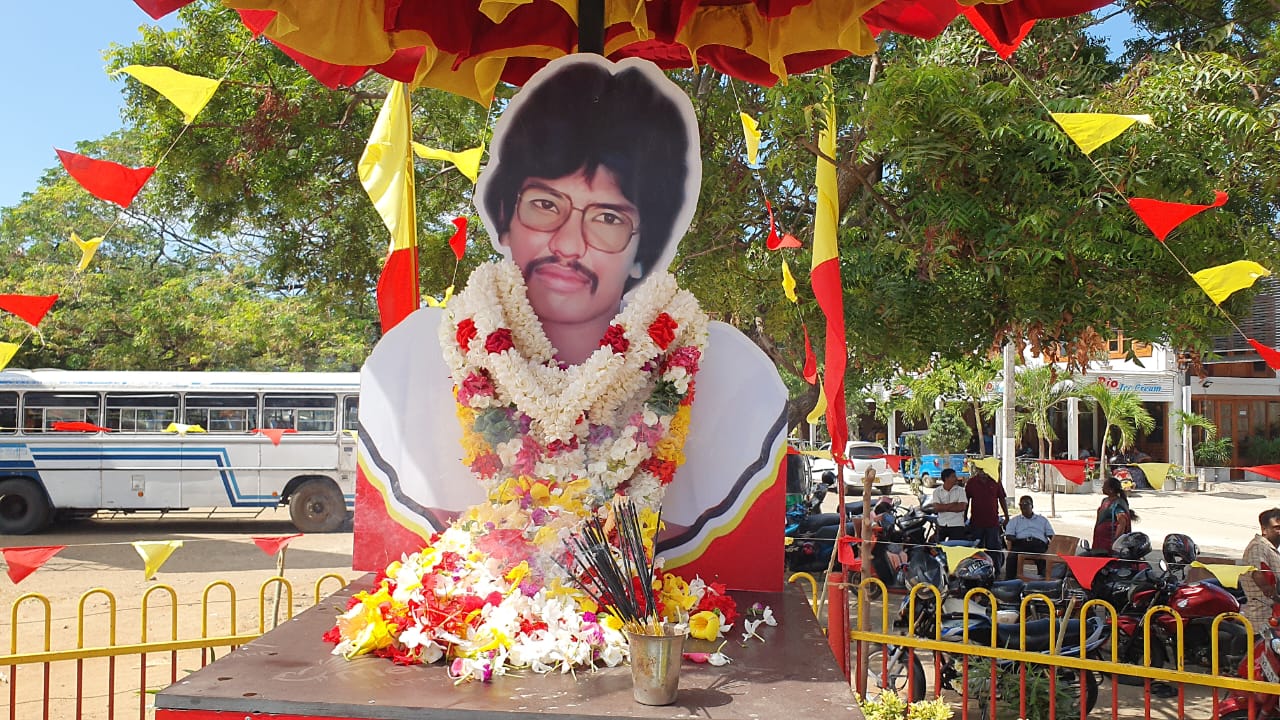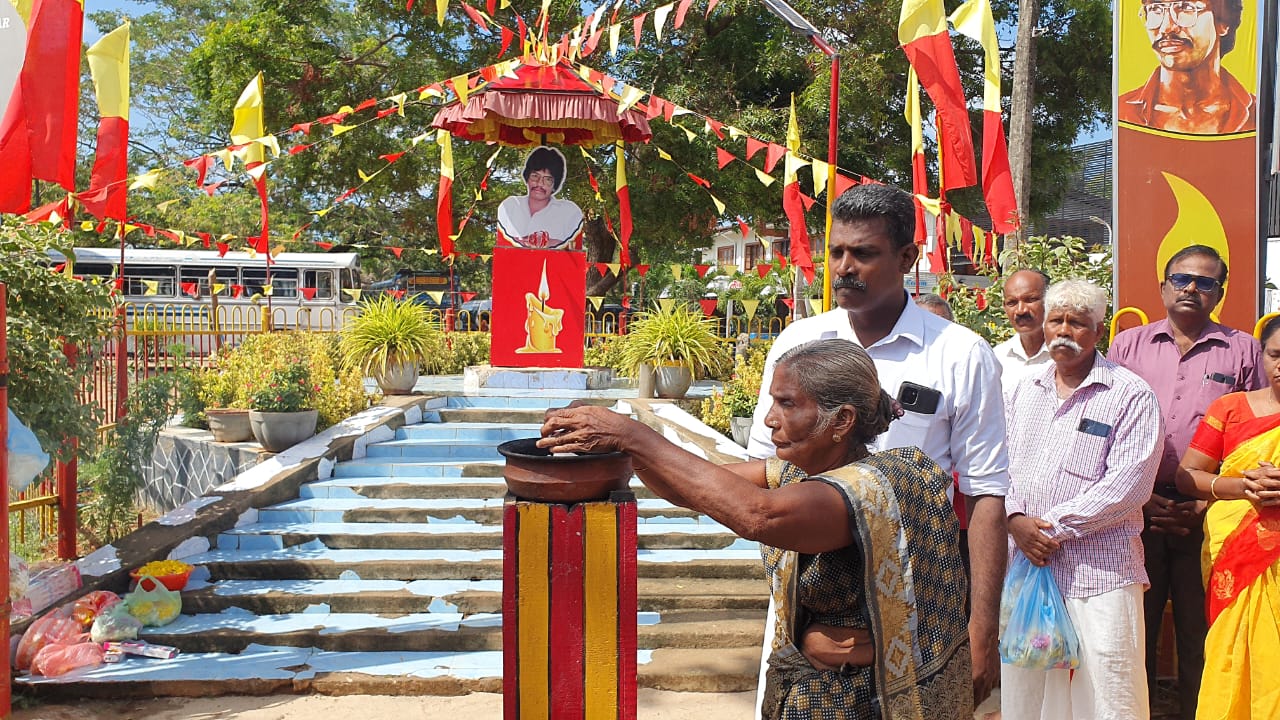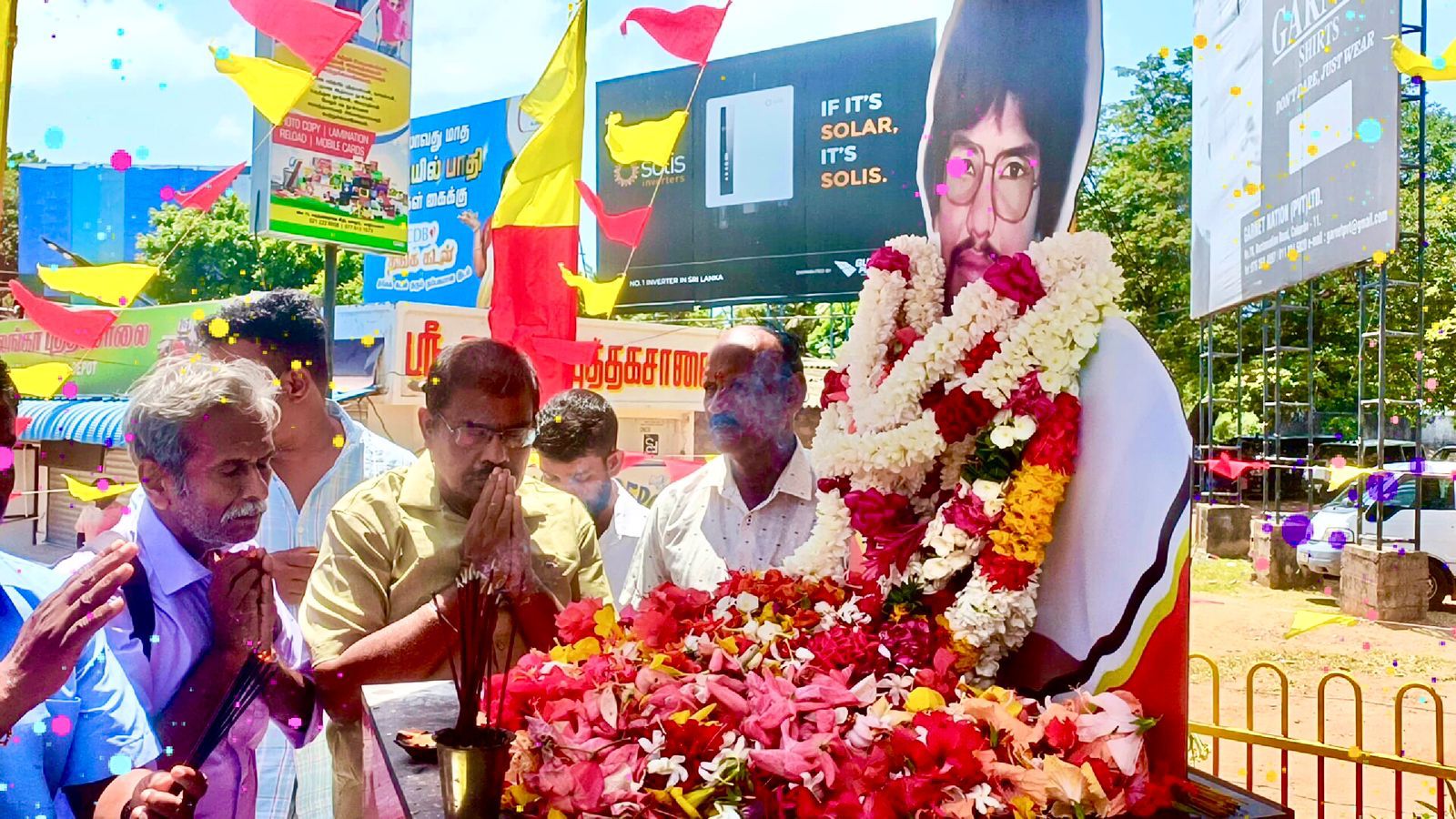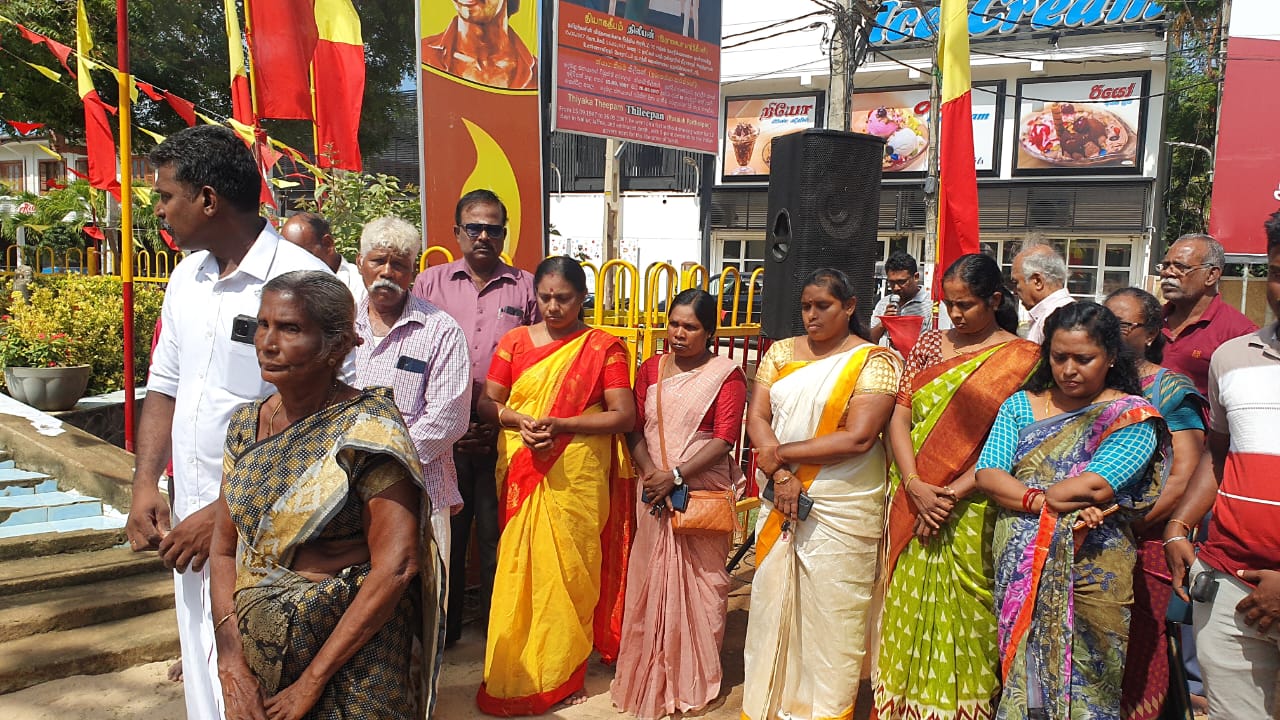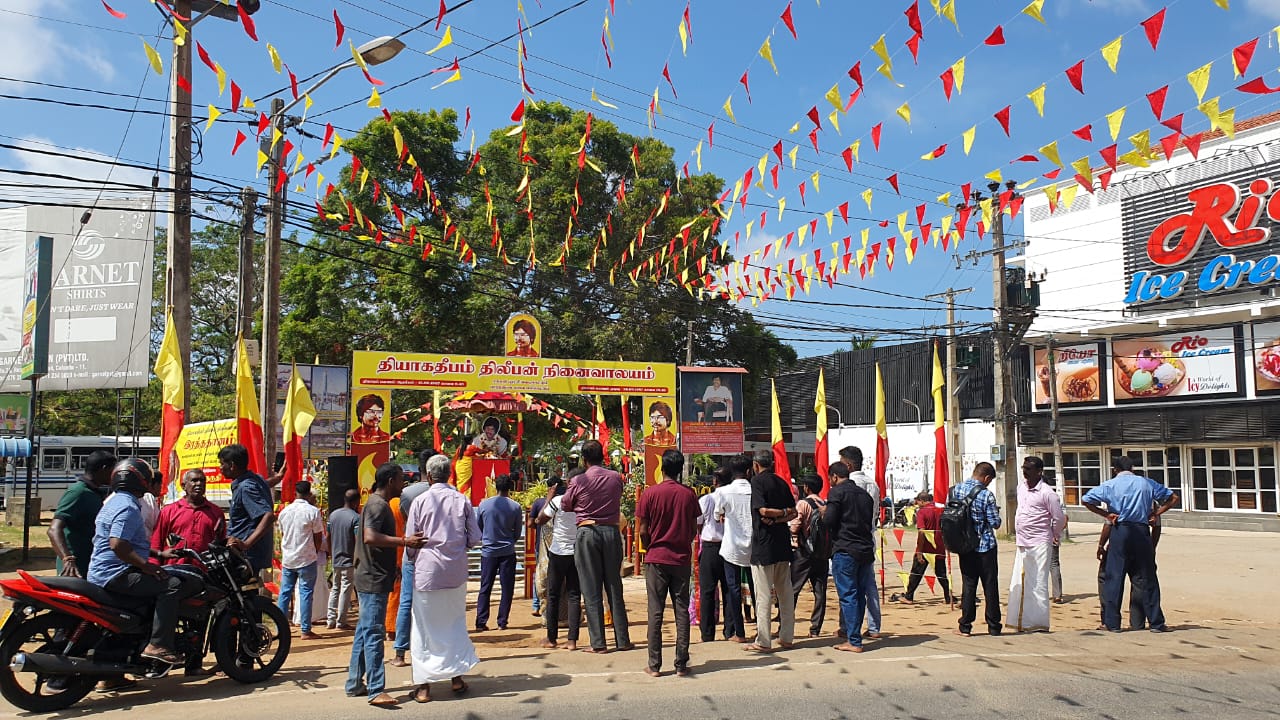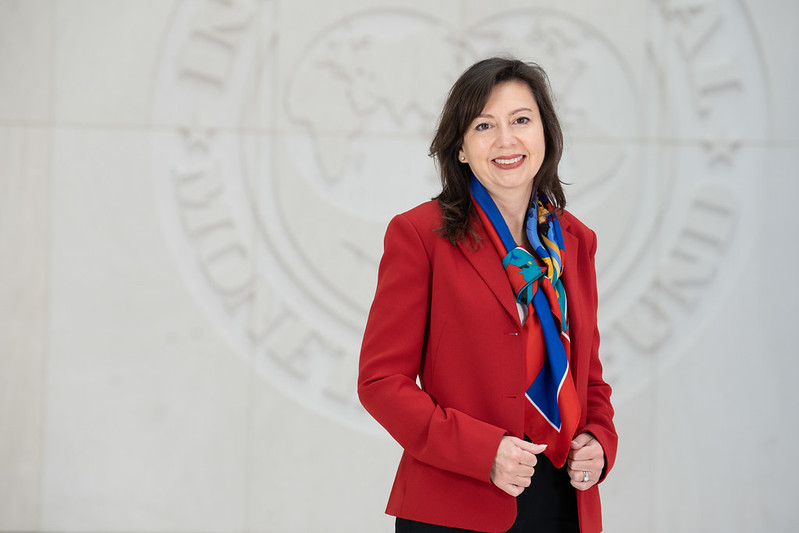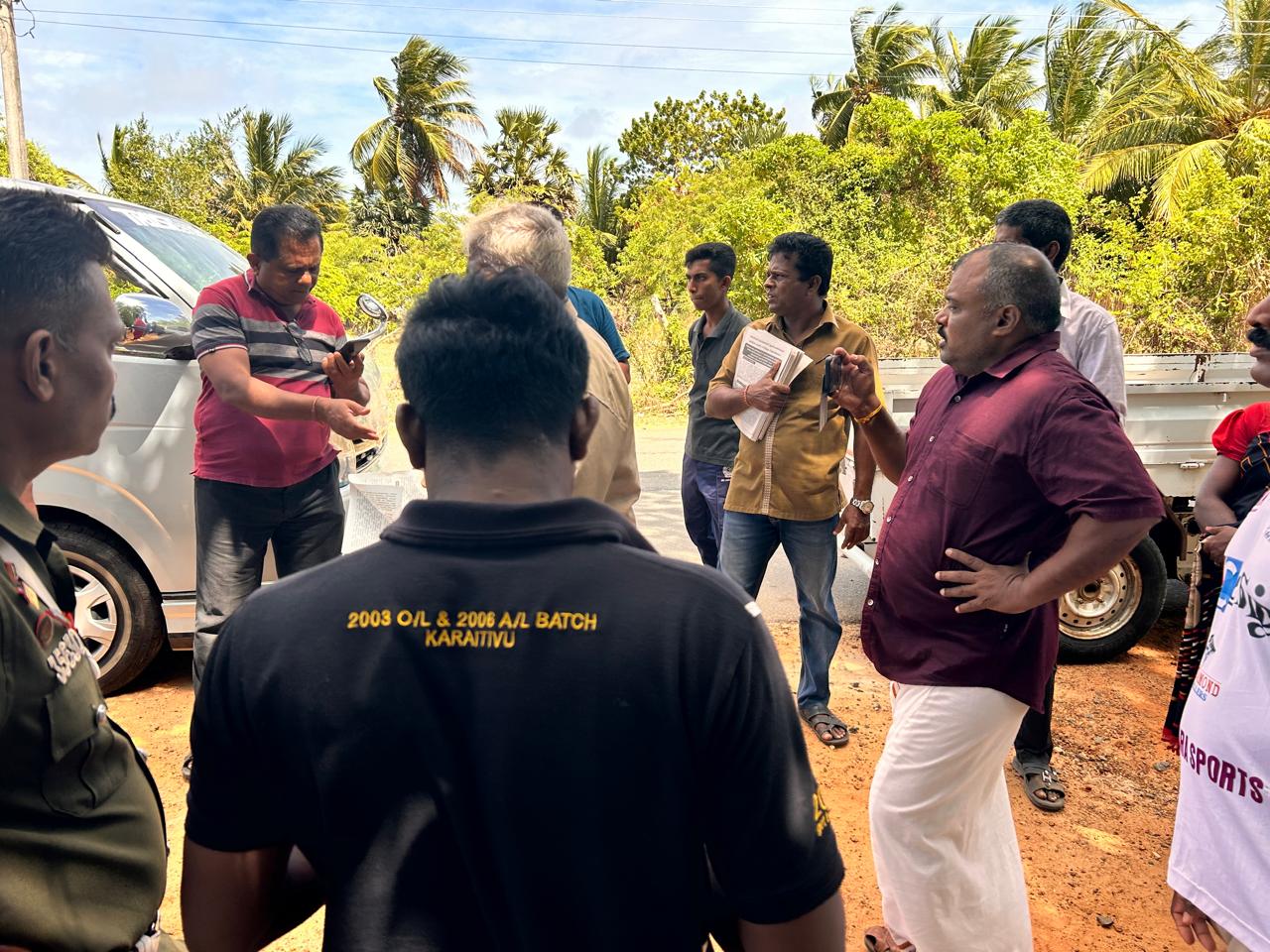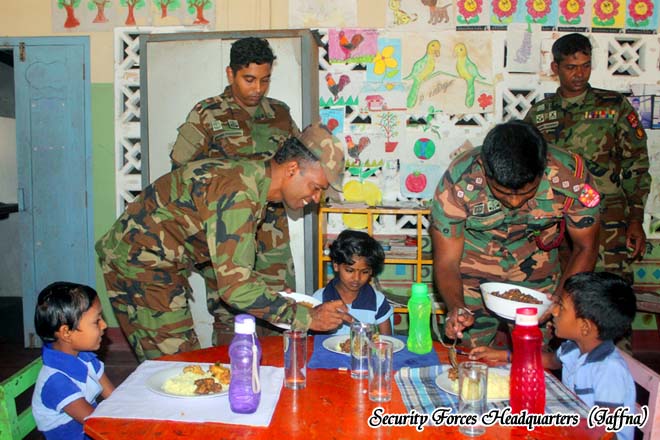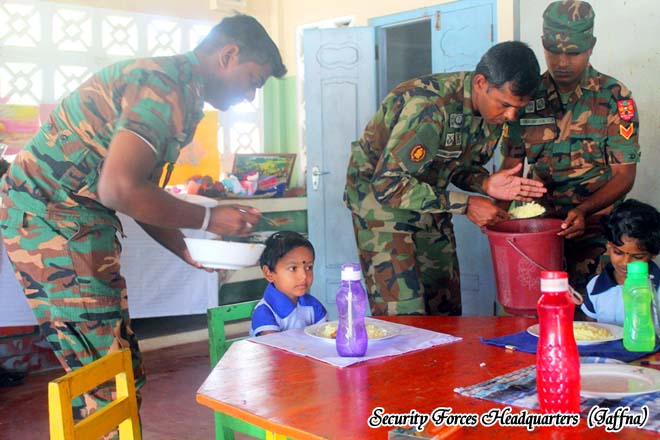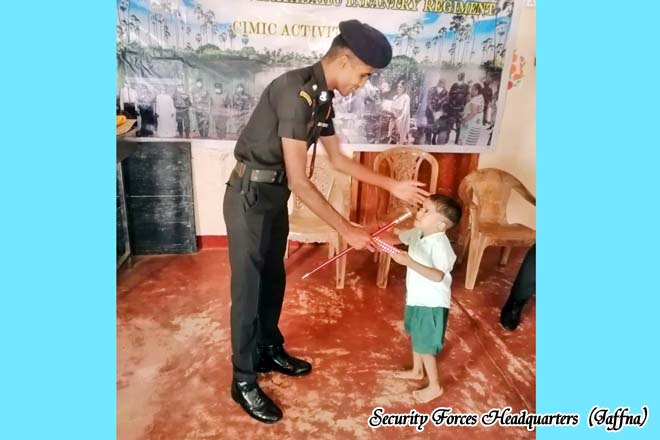Why Tamils should boycott Sri Lanka’s presidential election - Interview with Gajendrakumar Ponnambalam
Leader of the Tamil National People’s Front (TNPF), Gajendrakumar Ponnambalam, called on Tamils to boycott the upcoming presidential polls, stating that doing so would be a “rejection of the system” and calls the legitimacy of the Sri Lankan state into question.
In his interview with the Tamil Guardian, Ponnambalam spoke about the fundamental racism of the Sri Lankan state, why none of the leading Sinhala candidates are worthy of Tamil votes and why the Tamil candidate does not have his party’s support.
See the full interview and transcript below.
Your party has called for a boycott of the upcoming Sri Lankan presidential elections. Could you explain why?
Our party has called for a boycott of the presidential elections. This is not the first time that we have called for this boycott. In fact, when the All Ceylon Tamil Congress (ACTC) was within the TNA in 2005, the TNA also called for a boycott. The logic behind the boycott is that the Tamil vote must not be taken for granted, especially at a time when the Tamil vote can make a difference.
Those aspiring to become the president of the country, especially those who absolutely need the Tamil vote in order to win, should earn the votes of the Tamils. If the Tamils feel disenfranchised, as we have over the last several decades, in these presidential elections where the candidates have not shown any inclination to extend their support to the Tamil people's political demands, which have been quite consistent for over 70 years, then the Tamil people must realize that this system is not something that is geared for us.
That is the first reason. The second reason is something much deeper and something much more fundamental. Tamil national politics has always felt that the Sri Lankan state structure does not accommodate its aspirations. In fact, this Sri Lankan state structure is fundamentally racist in that it has been systematically groomed in a way to act against the interests of the Tamil nation. Therefore, the Tamils have always felt marginalized and have questioned the legitimacy of the Sri Lankan state. This is quite clear with regards to the constitution-making processes that took place on the three occasions when Sri Lanka promulgated a constitution for itself. The first Soulbury Constitution - the Tamils voted against it. The vast majority of the Tamil people after the Soulbury Constitution was adopted, with the leadership of the ACTC, used the first general election seeking votes to show that the Tamils in the North-East have rejected the constitution. In fact, the Tamils in the North-East overwhelmingly voted against the Soulbury Constitution… When the first Republican Constitution was being drafted, the Tamils rejected it. We did not take part, we walked out. The same way with regards to the second Republican Constitution, which is the present constitution, the Tamils have rejected. There is a serious question about the legitimacy of the state.
In an electoral process, where the Tamils can in fact bring out and focus on the illegitimacy of the state as far as we are concerned, is the presidential election. It is the only election in which the Tamils don't stand to lose representation. In a parliamentary election, if we choose to reject the system, parliamentary seats could be won by other forces who are against Tamil nationalist aspirations, giving a wrong impression. The same goes for local government and provincial councils.
The only election the Tamils can safely reject or boycott in total without suffering negative consequences is the presidential election. Our call for a boycott is because it is quite clear from the main Sinhala candidates who have repeatedly stated at various only commitment if at all is to the 13th Amendment to the Constitution, which is well within the unitary state structure. It is a constitutional provision that has proved to be an utter failure. 30 years after the 13th Amendment, we are still talking about trying to implement it. That in itself is a clear lesson that it is a ‘no-go’ position. But that is the only thing that is being offered. So there is no real choice for the Tamils as for the candidates who can win. It is on that basis that we have called for a boycott.
What is your stance on the Sinhala candidates and the pledges they have made?
As I touched on earlier, there are three main Sinhala candidates to be considered seriously: Anura Kumara Dissanayake of the NPP, Sajith Premadasa of the SJB, and Ranil Wickremesinghe of the UNP. Ranil Wickremesinghe and Sajith Premadasa have at various stages spoken about a commitment to the 13th Amendment to the Sri Lankan constitution, which in itself is a no-go for the Tamil people. The Tamils have rejected the unitary state structure. We have repeatedly stated that it can’t be the basis for a solution. On the contrary, the unitary state structure is one of the main causes of the conflict as it refuses to recognize the Tamil right to self-determination. It is completely counter to that right. It entrenches power in the hands of the Sinhala Buddhist majority, which has been an extremely hostile majority as the last 70-odd years have shown. Sinhala Buddhists has been to the complete detriment of Tamil nationalism and refused to co-habit. It has chosen a path of exclusion. So in that respect, for these candidates, at a time when they desperately need the votes of the Tamil to make sure of their chances of winning, even at this stage they can quite boldly reject the very clear, unambiguous demands for the recognition of Tamil nationhood and for it to be accommodated within a broader, larger umbrella state, within a federal structure. If that basic demand cannot be seriously considered, then quite clearly, they are not worthy of our votes.
Anura Kumara Dissanayake is even worse. He doesn’t even talk about… On the contrary, all indications are his idea of a solution is starting with a clean sheet and starting all over again in trying to build a ‘Sri Lanka identity’. But if you take the JVP’s past, their idea of a Sri Lankan identity was to support the Rajapaksas in the genocide that took place. Even though towards the latter part of Mahinda Rajapaksa’s regime they had differences, when it came to the genocide and when it came to the military action against the Tamil people, the JVP was fully supportive of it.
Even today, they have come out and quite clearly said there will be no accountability and that under no circumstances will anybody be prosecuted for war crimes or crimes against humanity or any breach of international humanitarian law.
So I think the JVP is a non-starter as far as the Tamil nationalist position is concerned. Therefore, there is no real choice. We are not in the business of choosing the better of evils. That is a disastrous path. It is a path that most people who want to keep the Tamil people under wraps and constantly going around with a begging bowl want us to take. Our organization’s view is that increasingly the Tamil people’s votes will become a crucial factor, both in choosing who wins or prevents someone from winning. And also with regard to stability. Sri Lanka is scraping the barrel in terms of its economic situation. It is in crisis. It is by no means stable. And you cannot continue to spend a large portion of the national budget on defence spending and expect the country to turn around.
Our view is that pressure can only be mounted by accommodating Tamil rights and Tamil aspirations. When the need to spend so much of the country’s money in the coffers for defence will become freed up and can be used for more productive needs.
The leverage the Tamil people have is far more than they ever had because Sri Lanka’s economy is in this dire state. That does not mean that we do not want the country as a whole to improve. But it can’t be done at our expense. That is not something we think is fair. For 75 years the Tamils have been waiting for a solution. Today when the state itself is in dire situations to be asked again for the Tamils to wait our turn is just not on.
What is your stance on the common Tamil candidate?
Regarding the Tamil candidate, our position is twofold. First, it's a question of credibility. The forces who are backing Mr. Ariyanenthiran unfortunately are people who have zero credibility in the eyes of the Tamils. These are people who until yesterday wanted the 13th Amendment. Given every opportunity when a foreign dignitary visits and has meetings – ones that I have personally taken part in and my colleague Mr Selvarajah Kajendren have taken part in – at every opportunity that these other Tamil forces got to espouse Tamil nationalist positions, they didn’t. Instead, they espoused a position that we have long rejected since 1987, which is the 13th Amendment. The defunct 13th Amendment. Ever since the day it was propagated in the constitution, we have been talking about implementing the 13th Amendment. So clearly when these guys who are not credible, who have never been faithful to Tamil nationalist aspirations, actors who have… worked with the Sri Lankan state or a foreign power to compromise the Tamil struggle, are the very same people who have been talking about the 13th Amendment since 2009.
We were part of the TNA, and we know what these actors' positions were soon after the end of the war, which is why one of the primary reasons why the TNPF was formed. We have been pursuing an independent path.
Just an example, Wigneswaran just before the elections were announced was calling for a postponement of the election and said the Ranil Wickremesinghe was the best option for Sri Lanka, and this is not a time that the election should be held. His support was for Ranil Wickremesinghe. People like Wigneswaran, people like Suresh Premachandran who is an outright 13th Amendment person and has absolutely no Tamil nationalist credentials. People like Selvam Adaikalanathan, who has one foot with Ranil Wickremesinghe, to be in this group. To have civil society actors who form a conglomerate who insist on the 13th Amendment just blindly being vessels of India’s wishes. And then you have another section of civil society that initially on their own stood for a position that the 13th Amendment was not even a starting point for negotiations. To all come together, there is clearly something wrong there.
Clearly, this alliance is not based on policy. Whatever policy that is being espoused is something that the vast majority of people who are behind this Tamil candidate are against until just the other day. Credibility-wise, to ask the Tamil people to go behind a bunch of people who we are convinced are merely looking for some sort of mandate post-election to say that they have got popular support to do something that is completely opposite to what the people that do vote for them had in their minds. That is, the rejection of the unitary state, the rejection of the 13th Amendment, the insistence on the recognition of the Tamil nation, the right to self-determination and at the very least a federal arrangement.
When we know that those are the drivers, if at all, the Tamil people will have when voting for them. But these people once that mandate is given will do the opposite and go with the 13th Amendment. A right thinking organisation can’t possibly, knowing that reality, show any repose in that group.
The larger reason for rejecting this Tamil candidate is that these elections are the only opportunity the Tamil people have to demonstrate that we question the legitimacy of the system. You can’t contest and work within the system and say that you also reject the system. We have to compromise on the other elections because if we reject the system and don’t contest, our representation can go in the wrong hands.
But in this election, there is no problem with regard to representation because there is no way a Tamil candidate can win. The only way to reject the system is to boycott the election. The Tamil candidate, in our view, is no different from voting for any of the Sinhala candidates. Just for election's sake if the Tamil people believe the Tamil candidate who is contesting is in fact genuine towards Tamil nationalist aspirations, they will be bitterly disappointed.
How does your stance vary from that of the Tamil candidate? Would voting for him have a different impact from boycotting the election?
Apart from the question of credibility or lack thereof regarding the Tamil candidate, the fundamental difference, and I think it’s a very important difference to do with this. The Sri Lankan state had this belief that with the destruction of the LTTE, the demoralization within the Tamil nationalist project would be so great and so complete, that they would be able to ensure that the Tamil nationalist project is given up on this island.
The way in which the war was fought, the ruthlessness, the genocidal intent — all of that was a major component of trying to achieve this goal of getting the Tamil people to give up the Tamil nationalist position. Since 2009, the entire apparatus has been to demoralize, either through logic, force, intimidation, or various other means, to achieve that goal. Now, just imagine if that very same dynamic of a state wanting the Tamil people, at any cost, to give up the Tamil nationalist project is turned on its head. The Tamil people could do the complete opposite — reject or call into question the legitimacy of the Sri Lankan state itself. This is a state that, for the last 75 years, has rejected Tamil aspirations, chosen to exclude, and destroy Tamil existence.
If the Tamils can, after 2009, after the genocide, and after all the oppression that has happened since, can still demonstrate that they are not willing to accept the legitimacy of the state until the state becomes inclusive by accepting and recognizing Tamil aspirations for nationhood, I think that is the most important and decisive message that can be sent. The only way to do that is by rejecting the system, and the ideal way to do that is in an election, by boycotting. To have the Tamil nation as a whole turn away and say, "We are not part of this."
Unfortunately, that process has a proviso because we must ensure that when we boycott and reject the system, we do not do harm to ourselves. For example, we must not allow the Tamil constituency to become disenfranchised. Or let our voice be usurped by forces completely opposed to us. We had this problem in 1994 when the Tamil people chose to boycott the elections. By and large, only a handful of people went and voted, and it was only the EPDP that contested in Jaffna. All the seats went to the EPDP, and for six years, even though there was clearly no mandate at all, the government, along with the EPDP stooges, was able to create quite a bit of tension.
We must be mindful that when we choose to question the legitimacy of the state because the state rejects us at every turn and has been acting to destroy our existence, we must not harm ourselves in the process. The Tamil candidate does the complete opposite. Even though he says he stands for these aspirations, by the mere fact of contesting an election that has nothing to do with us, that has nothing to offer us, he is legitimizing the state structure. So, for that reason, we strongly believe that the Tamil candidacy is, apart from being promoted by a discredited bunch of people committed to the unitary state and the 13th Amendment, which the Tamils have rejected since its inception, by voting for the Tamil candidate, we are also legitimizing the state. We are saying that this is not a question of the lack of legitimacy of the Sri Lankan state, but we are all within that. We imply there are only some minor changes needed. It’s not really an ethnic conflict; it’s not a question of the Tamil nation being in conflict with the Sri Lankan state, because our intentions are at loggerheads. That is not the message that comes from fielding a candidate. On the contrary, it suggests there’s a small power-sharing problem that we can negotiate and solve. The messages from the boycott and the vote for a Tamil candidate are fundamentally different regarding the legitimacy of the state or the lack thereof.
Sri Lanka police have been targeting and harassing the boycott campaign. Why? Do they view it as more disruptive than a Tamil common candidate?
The Sri Lankan police’s actions — harassing, intimidating, arresting, and filing cases against our organization and our members for trying to carry out a campaign calling for a boycott — are very clear. The Sri Lankan police have no problems with regard to the Tamil candidate because the legitimacy of the state is not being called into question, whereas the boycott is and it is a rejection of the system. It is precisely that dynamic. Also, in their minds, perhaps, the last successful boycott was in 2005 when the LTTE was around and called for it. Being mindful of the fact that a boycott succeeding means the Tamil people successfully call into question the legitimacy of the state, and the false propaganda around 2005 — when the LTTE was said to have intimidated the Tamil people forcefully into not voting — will get exposed. The narrative of Sinhala-Buddhist nationalist project, in its anti-LTTE and anti-Tamilness, will fall on its face. Clearly, they don’t want the boycott to succeed.
What are they doing? Contrary to the law that allows people the right to refuse to vote, they are trying to project the image that calling for a boycott is illegal. They are intimidating ordinary voters, intimidating our organization and members, but more importantly, they want to intimidate the voters and ordinary Tamil people into thinking that if they don’t vote, they will get into trouble. There is a campaign, with the common Tamil candidate and his supporters are in fact saying that. They are working hand in glove with the Sri Lankan state, to intimidate Tamil people into voting by lying and saying that if they don’t vote, it will have serious consequences for their jobs if they are government servants, and so on. They want to create the impression that this is an illegal position to take and to frighten people into voting and legitimizing the process.
The police are going out of their way to take action against the boycott campaign. I think that itself will make it quite obvious how important it is for the Sri Lankan state that this Tamil candidate somehow gets the votes. The interests of the Tamil candidates contesting and the Sri Lankan state's question of legitimacy are aligned.
How will you measure how many Tamils boycotted the election? What would be a successful outcome?
Clearly, it has to do with the percentage of voting. There’s no other way to assess it. It’ll be best assessed in a place like the North, particularly in Jaffna District, where you have mostly Tamil-speaking people, as opposed to the East, where state colonization has brought in a significant Sinhala population. If you look at the last presidential elections, the general voting percentage has been around 80% in the North and East, despite calls for a boycott. So, any movement from that position, in the form of a drop in the voting percentage, will indicate the boycott campaign has made inroads.
As for what it would take for the Tamil boycott campaign to consider it a success, I would say at the very least the voting percentage must drop below 50%. As far as we are concerned, the Tamil candidate being able to stand for Tamil nationalist positions, when in fact their position is completely contrary to Tamil aspirations, is a clear indication that the boycott campaign has gained a great mount of legitimacy.
The desperation to somehow make sure that the TNPF’s position does not gain legitimacy, and the fear that the 2005 LTTE position might also gain legitimacy at the time when there is no LTTE, drives those actors who have are completely unfaithful to the Tamil nationalist project and have compromised it to pretend they support it. Even so, a vote for them could be seen as part and parcel of a boycott and in line with a rejection of the present Sri Lankan state structure, because that is what they are saying in words when they campaign. Our view is that the ideal situation would be if the voting percentage drops below 50%. That is what we want to achieve and what we are campaigning for.

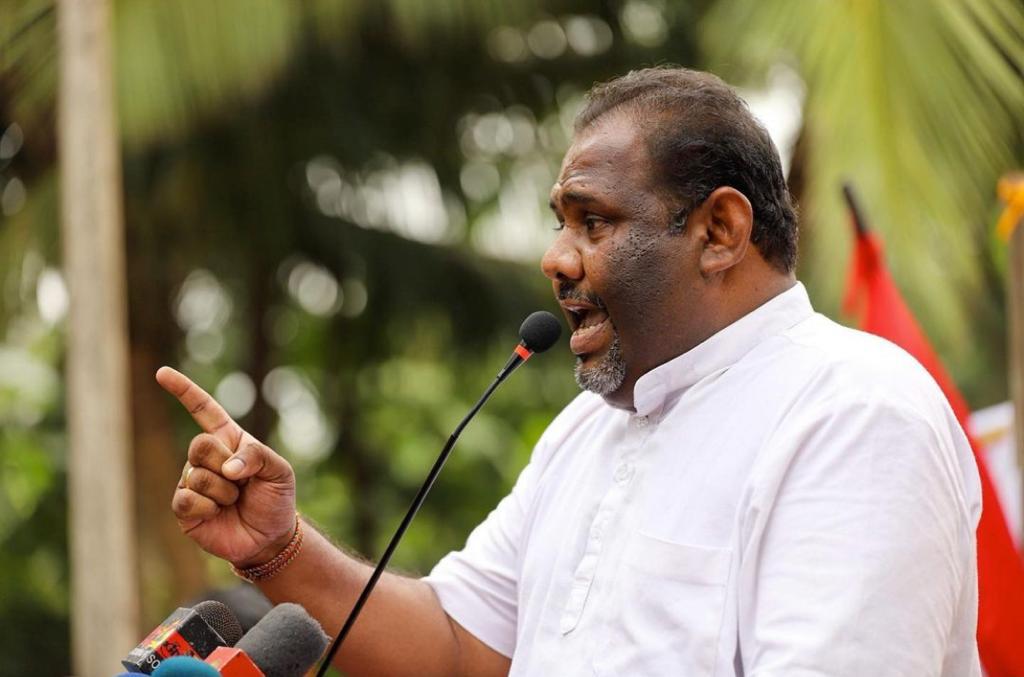

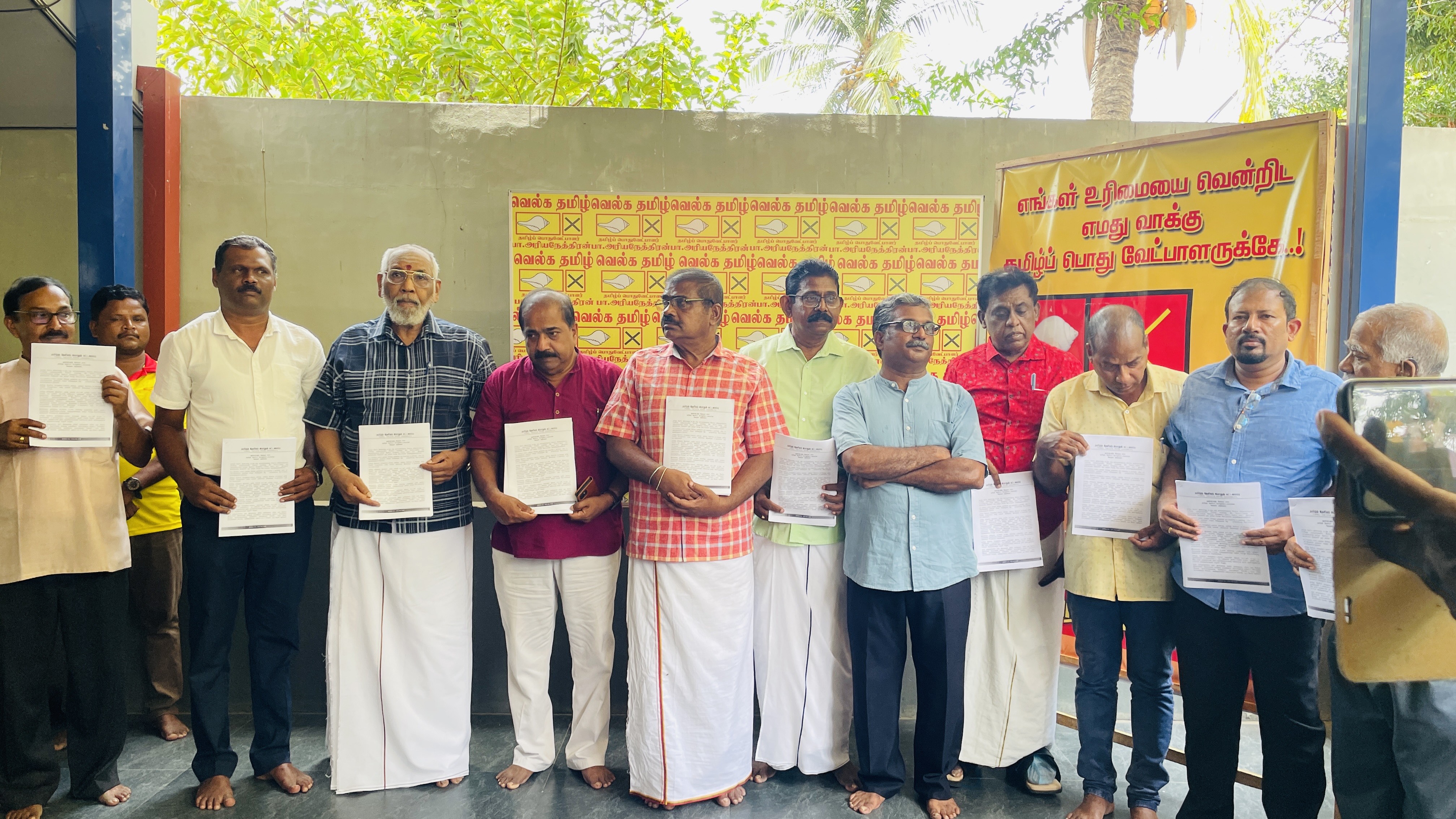
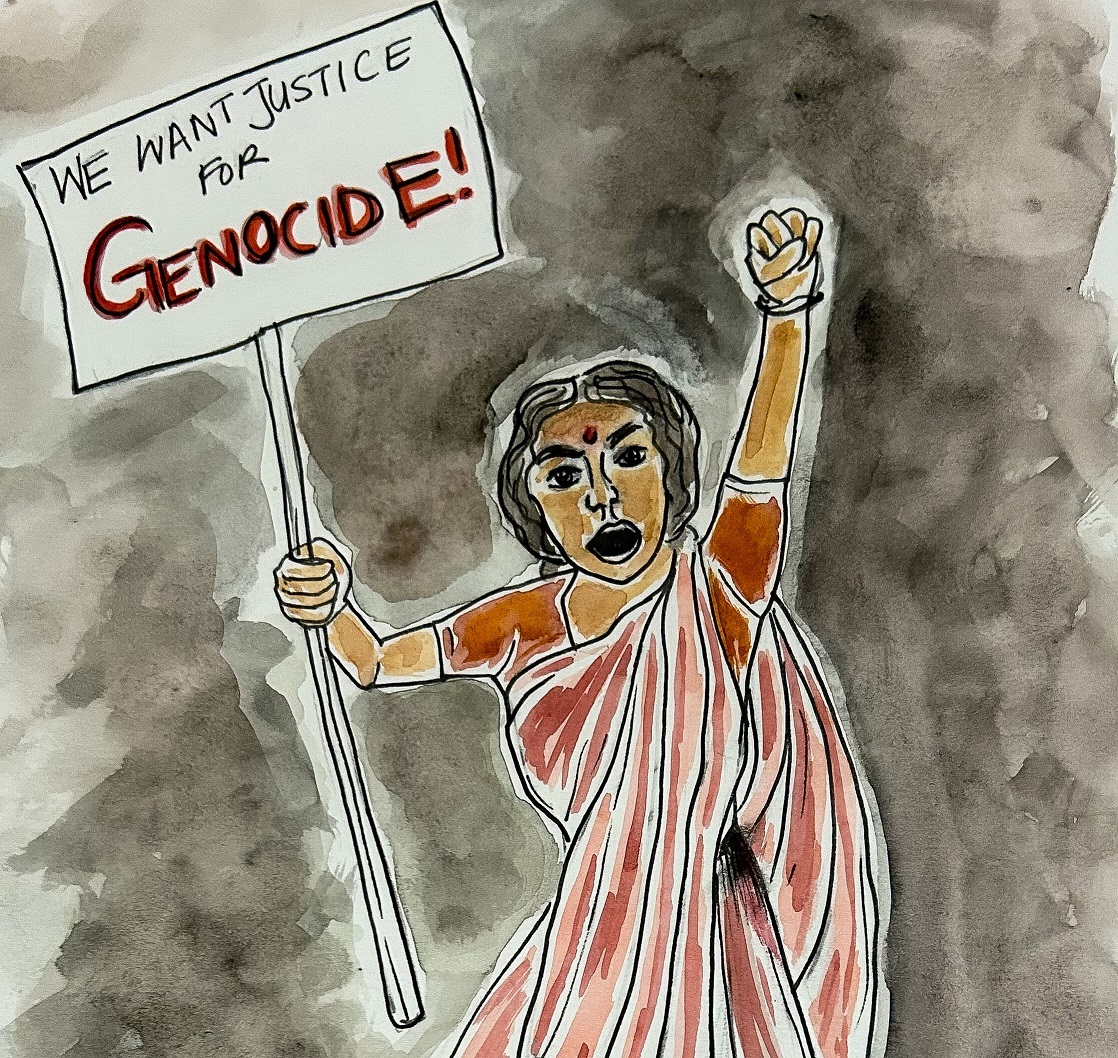

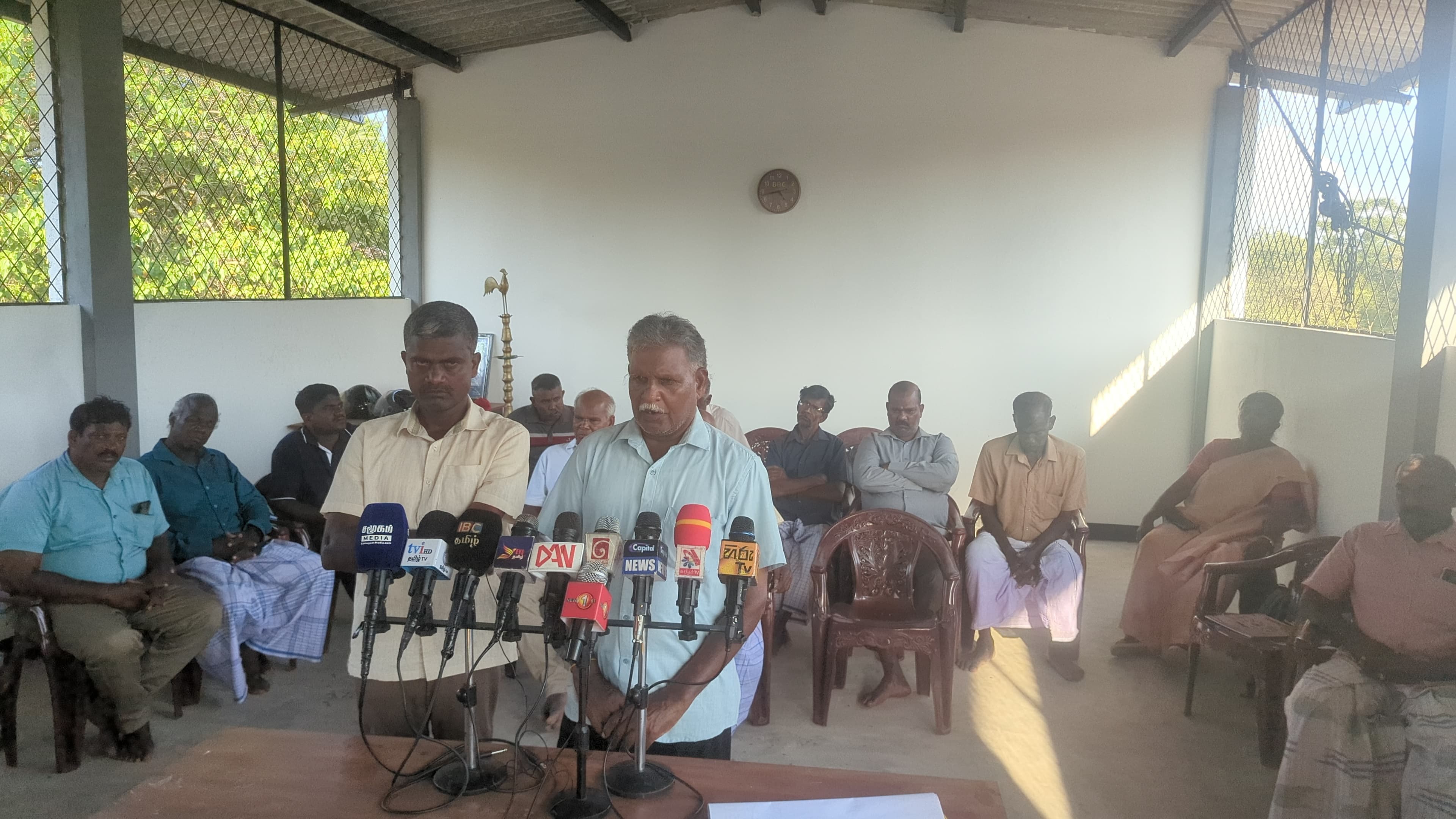
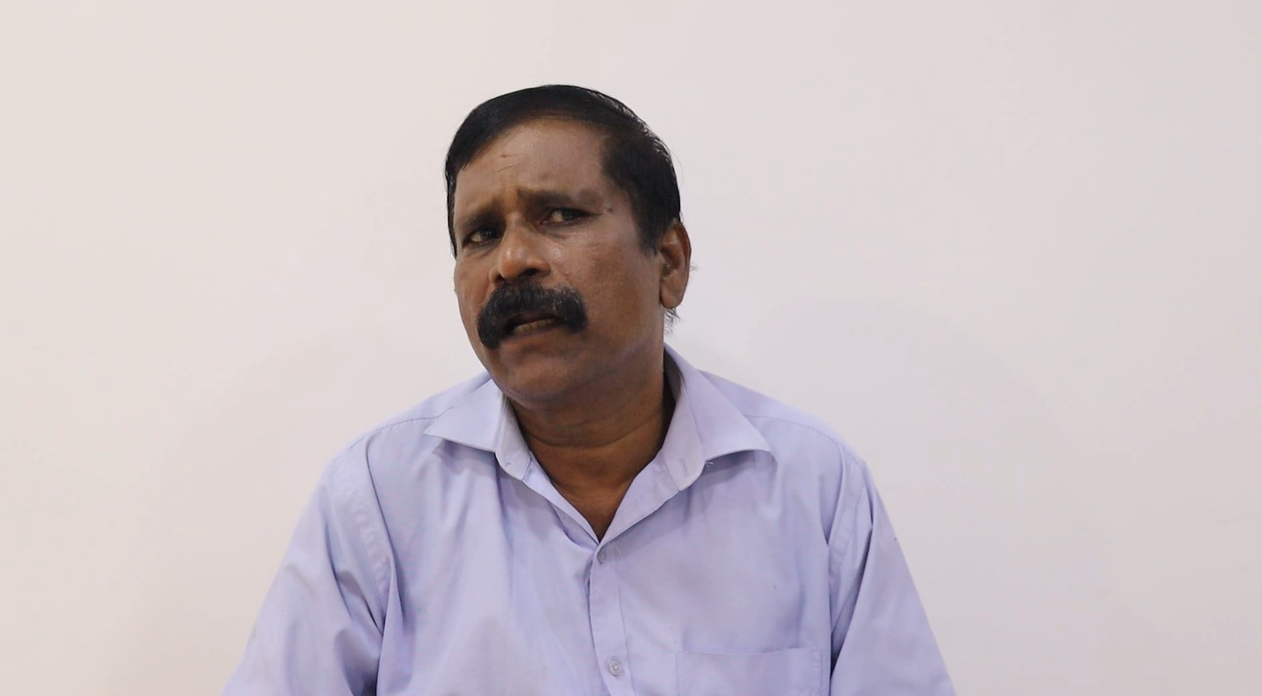

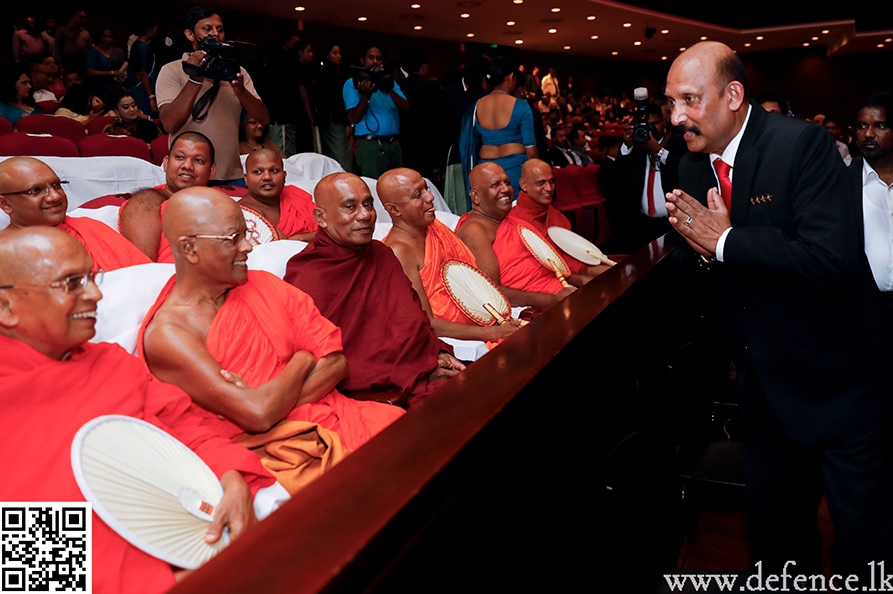
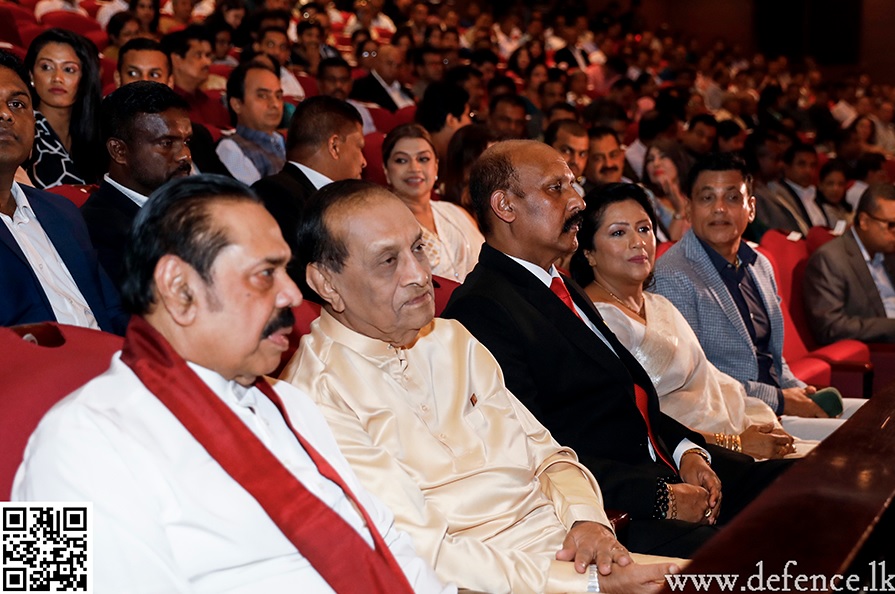
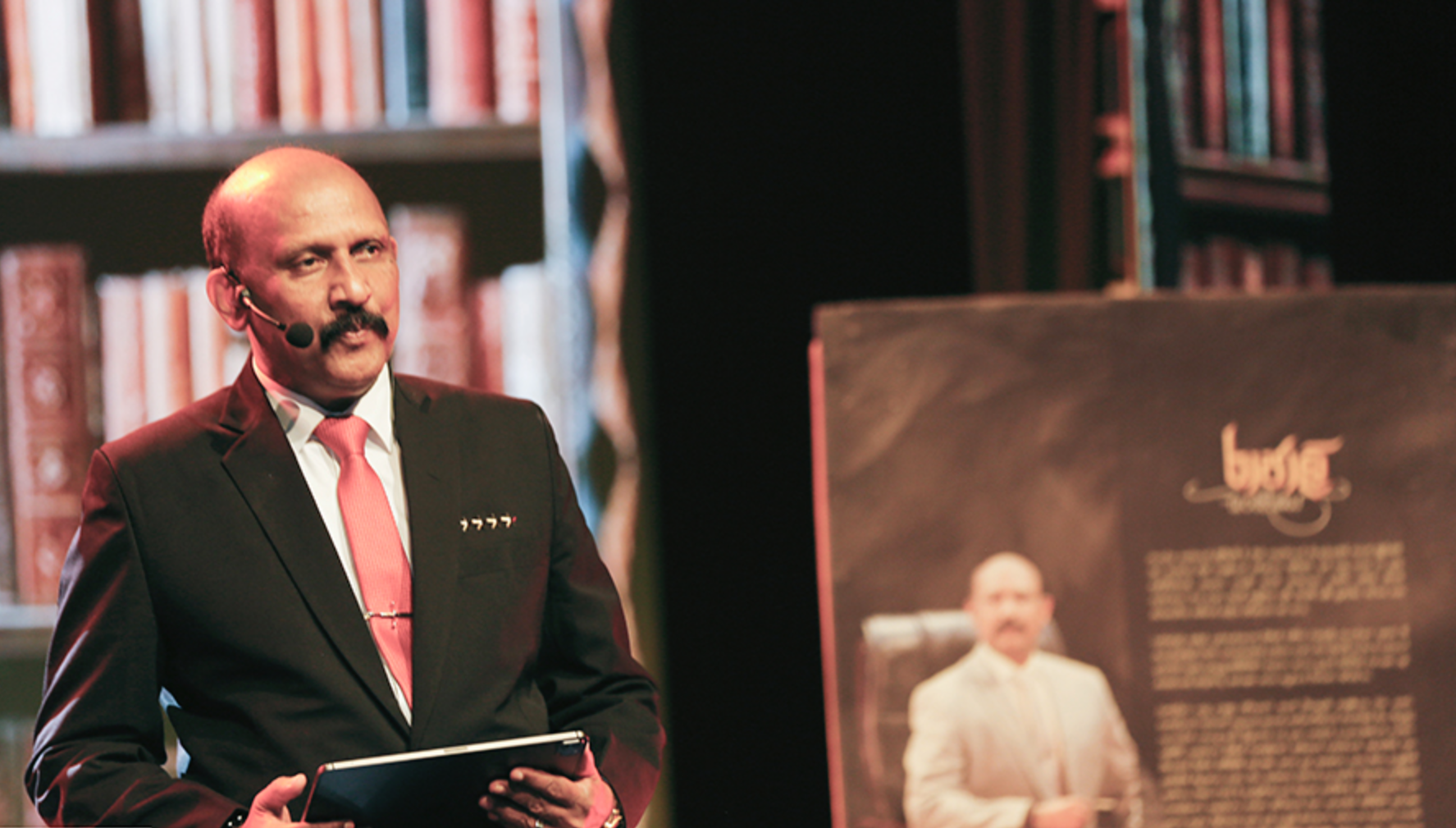

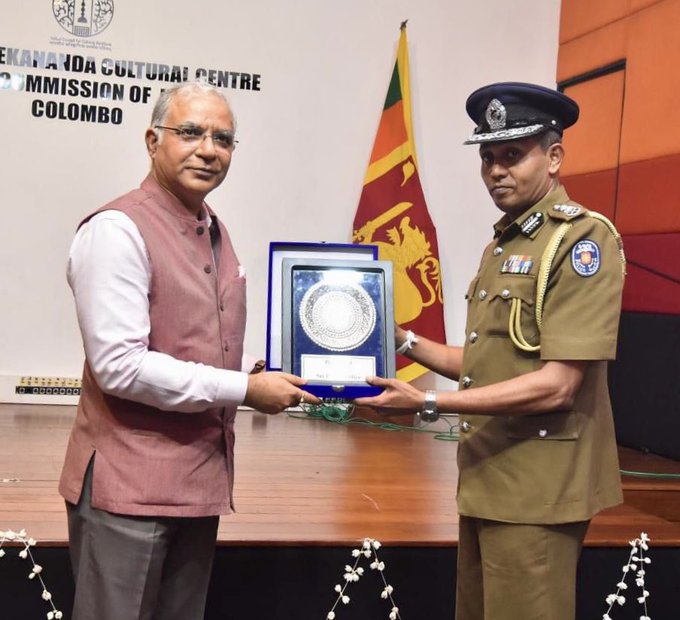

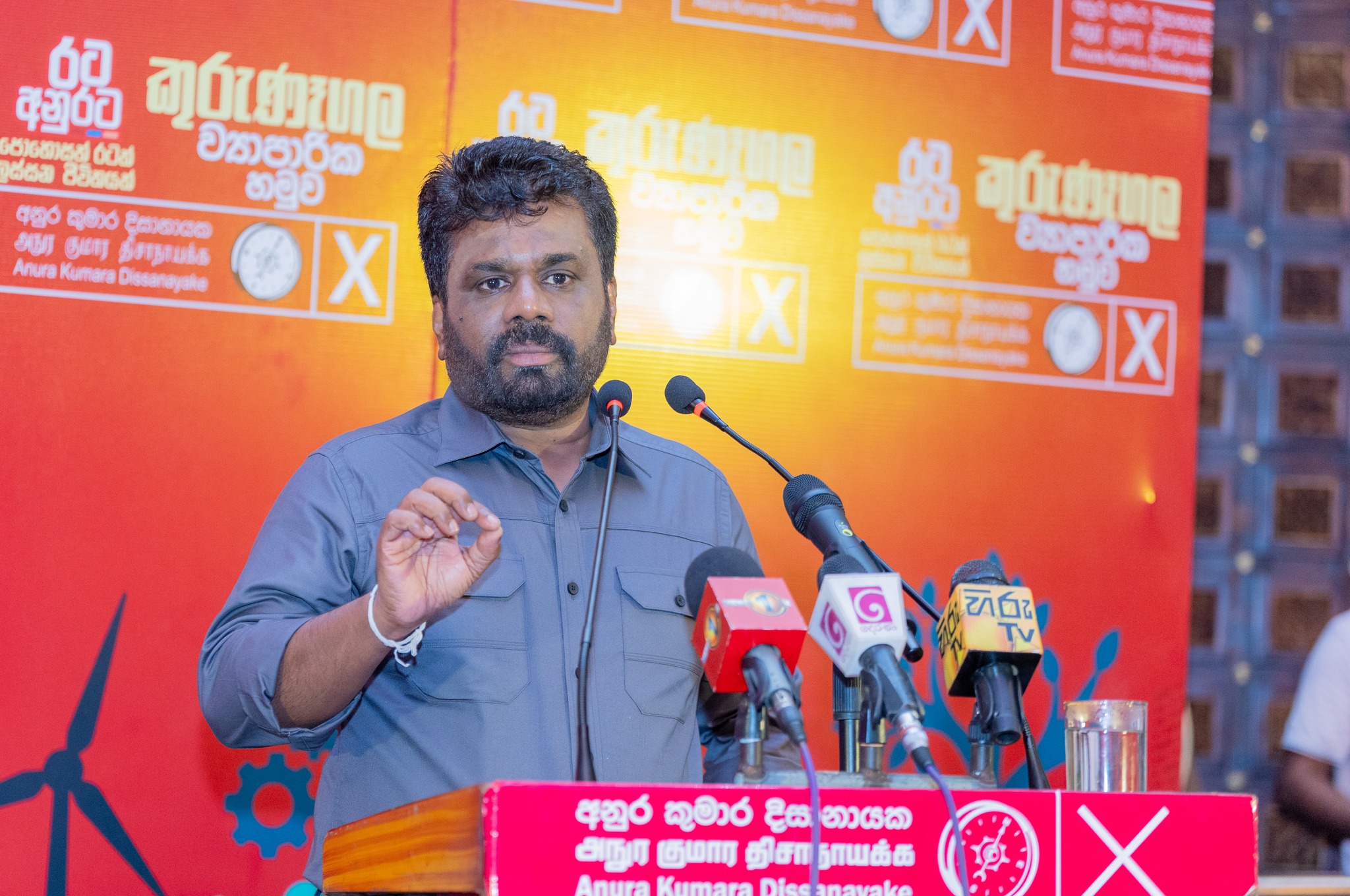

.jpg)
.jpg)
.jpg)

.jpeg)
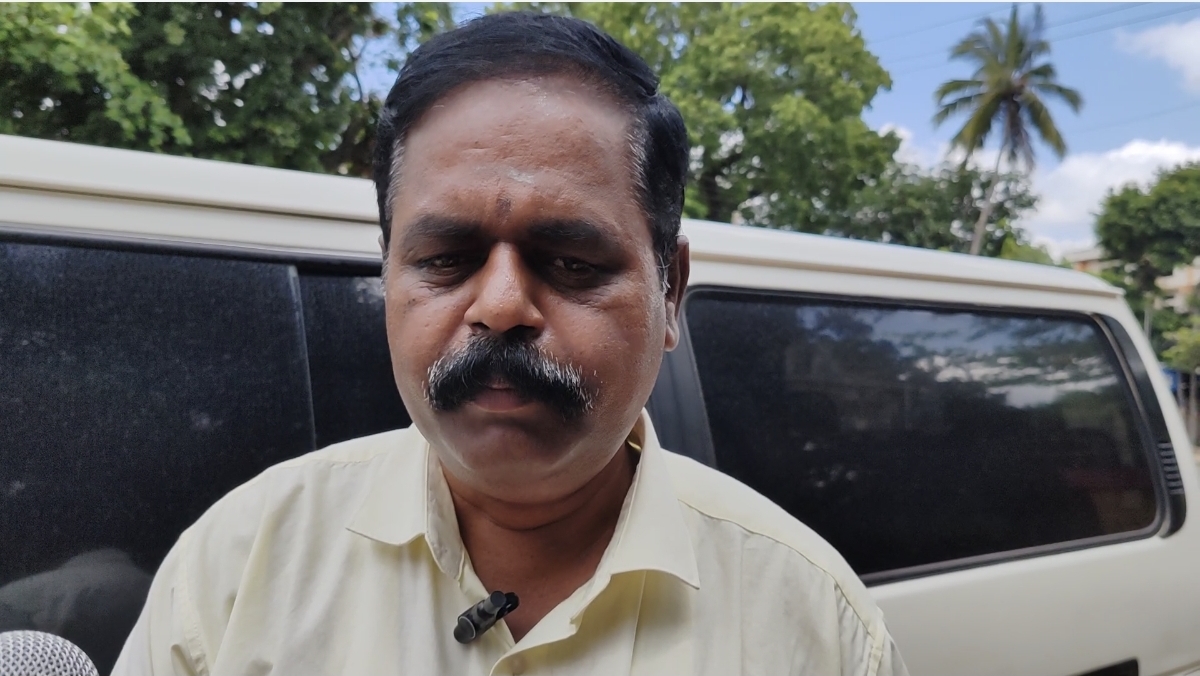
.jpeg)
.jpeg)
.jpeg)

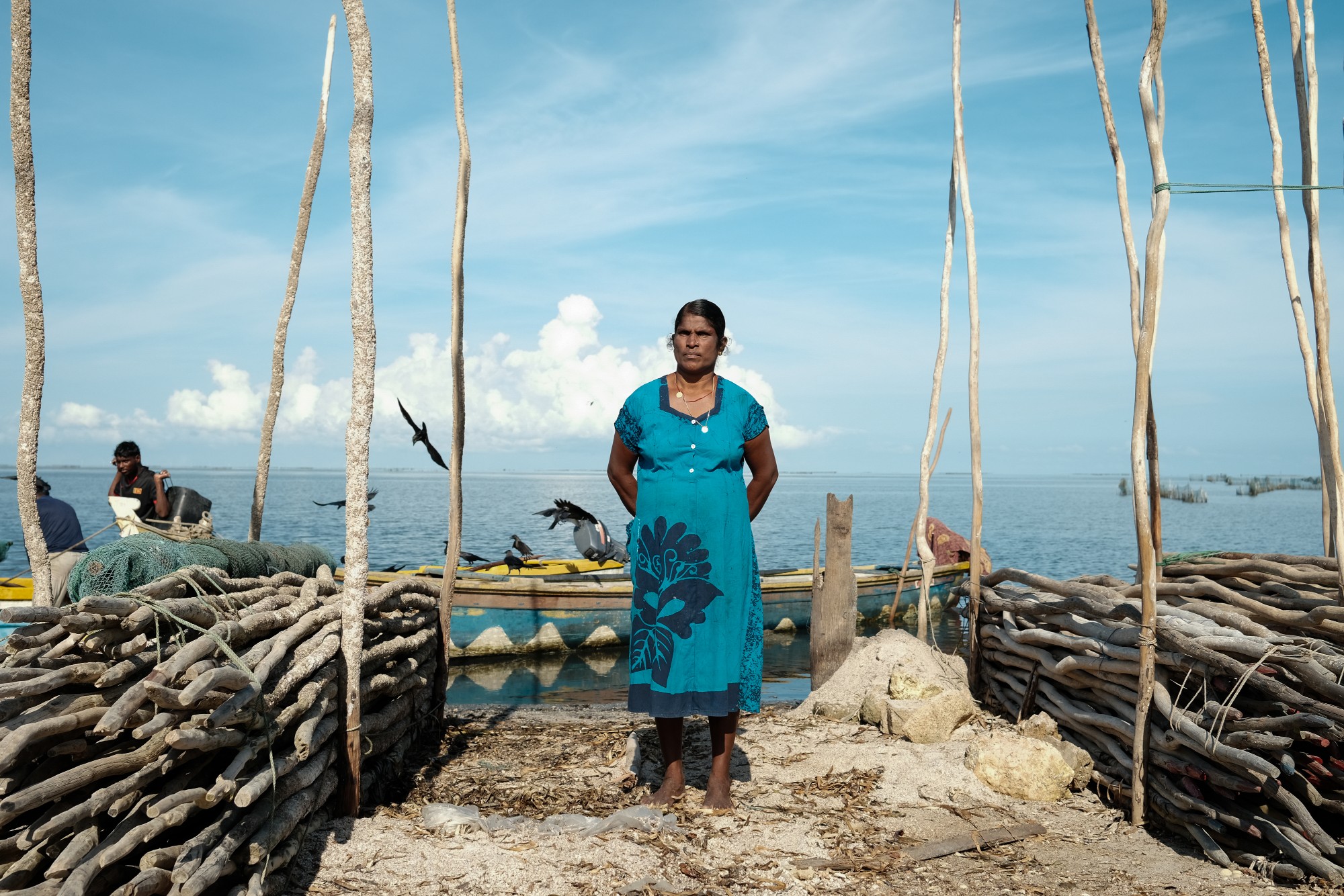

.jpeg)

